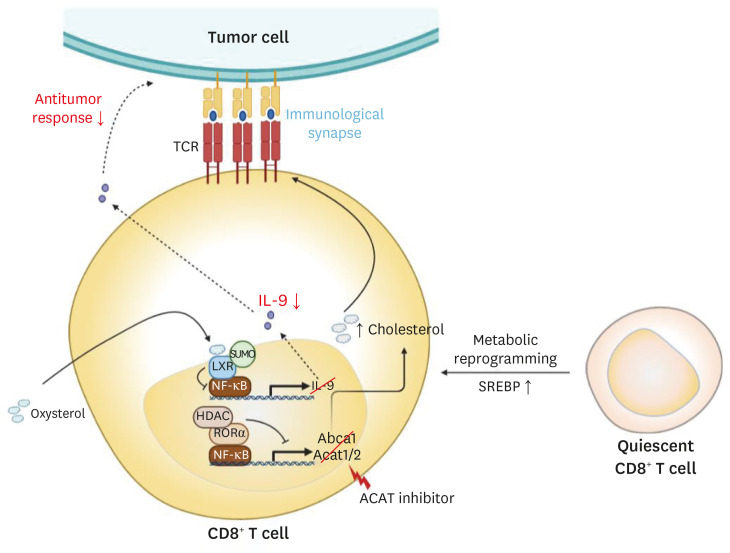Fig. 5. Cholesterol metabolism regulates the activation of CD8+ T cells and the antitumor activity of Tc9 cells. Cholesterol biosynthetic pathways are required for CD8+ T cell in a context-dependent manner, and so they play a crucial part in its anti-tumor efficacy. Increased cholesterol levels promote strong TCR signaling and consequently result in enhanced effector functions of CD8+ T cells. On the other hand, LXR SUMOylation by cholesterol-induced oxysterol reduces the antitumor response in Tc9 cells.
TCR, T cell receptor; LXR, liver X receptor; HDAC, histone deacetylase; RORα, retinoic acid-related orphan receptor α; SREBP, sterol regulatory-element binding protein; IL, interleukin.

